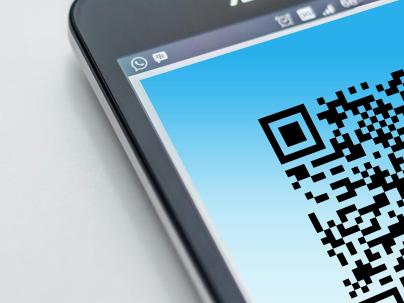Ensuring Data Security in Digital Product Passport Software

Questions?
Talk to a Digital Product Passport expert about your challenges - it's completely free.

Digital product passport (DPP) software is revolutionizing how businesses manage and secure product information throughout the supply chain. As the adoption of DPP software grows, so does the importance of ensuring robust data security, protection, and privacy.
This article addresses key aspects of data security in DPP software, providing a comprehensive overview of essential security measures, compliance with regulations, and the advantages of using blockchain technology.
Whether you’re considering implementing DPP software or seeking to enhance your current solution, this guide will help you understand how to protect your data and maintain the trust of your stakeholders.
Introduction to Digital Product Passport Software
Digital product passport (DPP) software enables the digital representation of a product’s lifecycle, ensuring that all relevant data is captured, managed, and made accessible. This includes information on product origin, manufacturing processes, supply chain details, and compliance with regulations.
DPP software is essential for maintaining transparency, traceability, and accountability throughout the product's lifecycle, making data security a top priority.
Key Features of Digital Product Passport Software
Effective DPP software must prioritize data security, protection, and privacy. The incorporation of blockchain technology is crucial in achieving these goals.
Blockchain provides a decentralized and immutable ledger, ensuring data integrity and security. It allows for transparent and tamper-proof record-keeping, making it an ideal solution for managing digital product passports.
Data Security in Digital Product Passport Software
Importance of Data Security
Data security is paramount in digital product passport (DPP) software due to the sensitive nature of the information it handles. A data breach can result in significant financial losses, reputational damage, and legal repercussions.
Ensuring robust data security measures is essential for protecting the integrity of product data and maintaining the trust of stakeholders.
Unlike traditional web2 technologies, web3-based software solutions offer enhanced security, leveraging decentralized networks and blockchain technology to provide superior protection against data breaches and unauthorized access.
Data Encryption
Encryption is a fundamental security measure in DPP software. It converts data into a coded format, accessible only to those with the decryption key. This ensures that even if data is intercepted, it remains unreadable to unauthorized parties.
Common encryption methods include Advanced Encryption Standard (AES) and RSA encryption, which provide robust protection against data breaches. However, blockchain remains the most advanced framework in data encryption and security, with popular methods like symmetric and asymmetric key cryptography.
Access Control and Authentication
Robust access control and authentication mechanisms are essential for safeguarding data within digital product passport (DPP) software. Effective access control ensures that only authorized individuals can view or manipulate product data, thus preventing unauthorized access and potential data breaches.
In DPP software, access control can be divided into two primary categories: read access and access to product ownership.
Read Access
Read access allows users to view all relevant information about a product. This type of access is commonly used by consumers, retailers, and other stakeholders who need to verify product details. For instance, a consumer in a store might scan a product's QR code to access its digital passport and verify its origin, manufacturing details, and compliance certifications.
Access to Product Ownership
This more sensitive access type allows users to claim and transfer product ownership directly on the blockchain. This is particularly important in industries where product ownership, such as luxury goods or pharmaceuticals, must be verified and transferred securely.
This access type is a post-purchase feature that allows products to be resold on the secondary market while eliminating the risks of counterfeiting.
Data Protection and Privacy
Data Protection Measures
Key strategies for data protection in digital product passport (DPP) software include regular updates, continuous monitoring, and leveraging blockchain technology's inherent advantages.
Regular software updates are crucial for addressing vulnerabilities and ensuring the DPP software remains secure against emerging threats. Continuous monitoring allows for detecting and mitigating security threats in real-time, guaranteeing proactive defense against potential breaches.
In a decentralized environment powered by blockchain, the concept of data backups is fundamentally different from traditional centralized systems. Unlike centralized environments, where backups are necessary to secure data, blockchain inherently replicates data across all nodes in the system.
This decentralized replication ensures data integrity and availability, eliminating the need for traditional backups. Additionally, blockchain technology provides real-time visibility into the network, allowing stakeholders to see what's happening at any moment, further enhancing security and transparency.
Compliance with GDPR
Compliance with the General Data Protection Regulation (GDPR ) is critical for DPP software operating in Europe. DPP software naturally aligns with GDPR requirements by working with digital wallets. Creating a wallet and claiming ownership of an object through the blockchain inherently supports GDPR compliance by ensuring secure and transparent data transactions.
This functionality revolutionizes how brands communicate with customers, providing enhanced transparency and control over personal data. Implementing measures to protect personal data, offering transparency about data usage, and ensuring users' rights to access and control their data are foundational elements of DPP software.
Achieving and maintaining GDPR compliance helps businesses avoid legal penalties and builds customer trust and loyalty.
Data Privacy Practices
Best practices for maintaining data privacy include minimizing data exposure and implementing stringent privacy policies. Only essential data should be collected and stored, and access to sensitive information should be restricted.
Implementing privacy by design and default ensures that privacy considerations are integrated into every aspect of the DPP software.
Server Security for Digital Product Passport Software
Importance of Server Security
In traditional centralized DPP software solutions, server security is crucial in protecting data. Common threats include server downtime, data loss, and data corruption. Mitigation strategies involve using secure hosting solutions, implementing firewalls, and performing regular security audits.
However, these centralized solutions have inherent vulnerabilities that can be difficult to eliminate completely.
Decentralized DPP software, leveraging blockchain technology, addresses these issues by distributing data across multiple nodes. This decentralized approach enhances security and ensures data integrity and availability, mitigating the risks associated with central server failures.
Decentralized vs. Centralized Solutions
Decentralized DPP software solutions, leveraging blockchain technology, offer significant advantages over centralized systems. Blockchain's distributed ledger ensures that data is replicated across multiple nodes, eliminating single points of failure and reducing the risk of data loss or corruption. Decentralized solutions enhance data security by providing robust protection against server-related issues.
Regular Security Audits
Conducting regular security audits is essential for maintaining the security of DPP software. Audits involve assessing the software's security measures, identifying vulnerabilities, and implementing improvements.
This proactive approach ensures that the software remains resilient against evolving security threats.
Conclusion
Data security, protection, and privacy are the bedrock upon which successful DPP solutions are built. Robust security measures empower consumers and mitigate risk for businesses, minimizing the potential for breaches and ensuring compliance. In today's competitive landscape, a commitment to data security can be a significant differentiator.
At Authentify It, we understand the intricacies of secure data management within the DPP ecosystem. Our cutting-edge, blockchain-based software solutions are designed to simplify the integration of DPPs, maximize data security through blockchain's inherent immutability, and enhance transparency for all stakeholders throughout the supply chain.
Ready to unlock the full potential of secure DPPs? Contact Authentify It today and discover how our solutions can empower your business to build trust, achieve your sustainability goals, and unlock the competitive advantage that comes with prioritizing data security.
Book a discovery call to find out more.

